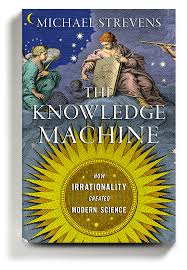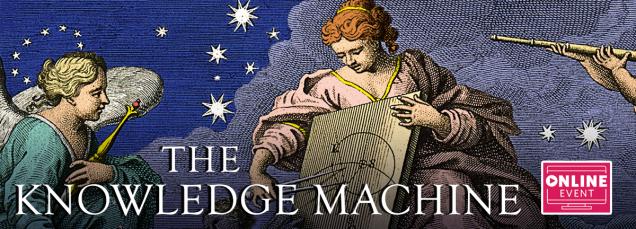Simanaitis Says
On cars, old, new and future; science & technology; vintage airplanes, computer flight simulation of them; Sherlockiana; our English language; travel; and other stuff
CAN SCIENCE BE IRRATIONAL?
IT SOUNDS CONTRADICTORY to say that science can be less than rational. However, a book review in Science magazine, published weekly by the American Association for the Advancement of Science, is titled “Science’s Irrational Origins.”

AAAS characterizes science as “the systematic enterprise of gathering knowledge about the world and organizing and condensing that knowledge into testable laws and theories.” Its recent Member Community online forum expanded on this with a multitude of nuances. Rationality is but one of these issues.

Rationality. One of Merriam-Webster’s definitions of “rationality” is “the quality or state of being agreeable to reason,” which might sound like a prerequisite of science.

However, in their Science review, January 1, 2021, of The Knowledge Machine, Itai Yanai and Martin J. Lercher cite author Michael Strevens’ view of science that “we must acknowledge the role played by the undisciplined and emotional nature of the humans who carry it out. The book takes readers on a whirlwind tour through the history of science, rendering Arthur Eddington, Louis Pasteur, G.G. Simpson, Lord Kelvin, and many others as ‘warm-blooded organisms, whose enthusiasms, hopes, and fears mold their thinking far below the threshold of awareness.’ ”
That is, reason isn’t always at the root of science.
The Spark of Human Creativity. Yanai and Lercher cite Sir Isaac Newton admitting, “I have not as yet been able to deduce from phenomena the reason for these properties of gravity, and I do not feign hypotheses…. It is enough that gravity really exists and acts according to the laws that we have set forth.”
Night Science, Day Science. The reviewers cite French biologist François Jacob, 1920–2013, who proposed the concept of “night science” as opposed to “day science.”
Night science is the practice in which “scientists generate new ideas and hypotheses in often unstructured thought processes.” This complements day science, “wherein new ideas are tested empirically and reported formally.”

Strevens’ Iron Rule of Explanation. Strevens “proposes that the distinguishing feature of science is a procedural agreement, which he refers to as the ‘iron rule of explanation.’ This rule holds that differences in scientific opinion must be settled by empirical testing alone.”
“Thus,” Yanai and Lercher continue, “a scientist cannot argue for one hypothesis over another because it is more beautiful or more appealing philosophically or because it is better aligned with ‘God’s plan.’ The iron rule applies only to official communications. Outside of such venues, scientists may think and believe as they wish.”
The reviewers conclude, “While Strevens’ iron rule may indeed be the foundation of modern science’s success, the methods scientists use to come up with new ideas remain elusive.” For example, they also cite Richard Feynman’s The Pleasure of Finding Things Out. ds
© Dennis Simanaitis, SimanaitisSays.com, 2021

Pingback: CAN SCIENCE BE IRRATIONAL? – Glyn Hnutu-healh: History, Alchemy, and Me